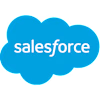
Why CRM for Education Industry is No Longer Optional
Starting at
$
100
About this service
Summary
What's included
Why CRM for Education Industry is No Longer Optional
In today's highly competitive education landscape, institutions are increasingly turning to technology to streamline operations, enhance student experiences, and improve recruitment and retention. Among these tools, CRM for education industry is proving to be one of the most transformative. This blog explores why CRM solutions have become essential for educational institutions, how they are being used, and what to look for when selecting one for your school, college, or university.
Duration
1 week
Skills and tools
Account Manager
Customer Success Manager
Sales Manager

Asana

Golang

HubSpot

Salesforce
Industries
